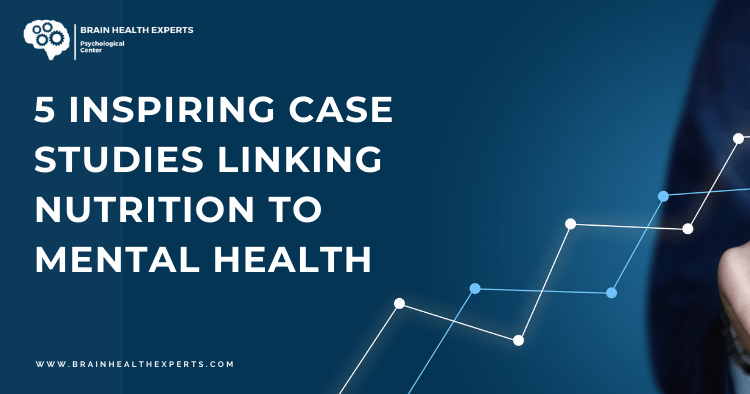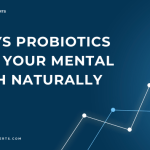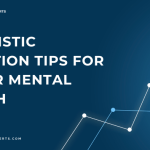Table of Contents
- Introduction
- Case Study 1: The Mediterranean Diet and Reduced Depression
- Case Study 2: Omega-3 Fatty Acids and Anxiety Reduction
- Case Study 3: The Role of Gut Health in Mental Wellbeing
- Case Study 4: Micronutrients and Mood Regulation
- Case Study 5: Food and Cognitive Function in Older Adults
- FAQs
- Conclusion
Introduction
In recent years, the connection between nutrition and mental health has garnered significant attention. Evidence suggests that what we eat can profoundly influence our mood, cognitive function, and overall mental wellbeing. This article explores five inspiring case studies that illustrate the powerful link between nutrition and mental health, providing valuable insights for those looking to improve their mental health through dietary changes. For more insights on how positive thinking can enhance mental health, check out 10 Powerful Affirmations to Boost Mental Health Today.
Case Study 1: The Mediterranean Diet and Reduced Depression
A study conducted by researchers at the University of Navarra in Spain found that individuals who closely adhered to the Mediterranean diet reported lower levels of depression. The Mediterranean diet emphasizes whole foods, healthy fats, fruits, vegetables, and lean proteins.
Findings:
- Participants who followed the diet strictly showed a 30% reduction in the risk of developing depression.
- The diet’s high levels of omega-3 fatty acids, antioxidants, and fiber contribute to its protective effects on mental health.
“Healthy eating is not just about nutrition; it’s about nourishing your mind too.”
Visual Element:
| Mediterranean Diet Components | Mental Health Benefits |
|---|---|
| Olive Oil | Anti-inflammatory |
| Fish | Omega-3 fatty acids |
| Fruits & Vegetables | Antioxidants |
| Whole Grains | Fiber-rich |
For more information on the Mediterranean diet and its benefits, visit the Mediterranean Diet Foundation.
Case Study 2: Omega-3 Fatty Acids and Anxiety Reduction
A landmark study published in the Journal of Clinical Psychiatry examined the effects of omega-3 fatty acids on anxiety levels. Participants supplemented their diets with omega-3s over a 12-week period.
Findings:
- The results showed a significant decrease in anxiety symptoms, with 47% of participants reporting a reduction in anxiety levels.
- Omega-3s are believed to have anti-inflammatory properties that may positively affect neurotransmitter function.
“Small dietary adjustments can lead to profound changes in how we feel.”
FAQs:
Q: How can I increase my omega-3 intake?
A: You can consume fatty fish, flaxseeds, walnuts, and omega-3 supplements. To learn more about how nutrition impacts mental health, explore 10 Nutritional Tips to Enhance Your Sleep Quality.
For a deeper dive into omega-3s, check out the National Institutes of Health.
Case Study 3: The Role of Gut Health in Mental Wellbeing
A groundbreaking study by researchers at the University of California explored the gut-brain connection, demonstrating how gut health directly impacts mental health.
Findings:
- Participants who improved their gut health through probiotics and a fiber-rich diet experienced a 25% reduction in symptoms of depression and anxiety.
- The study highlighted the gut microbiome’s role in producing neurotransmitters like serotonin, which is crucial for mood regulation.
“The gut is often called the second brain, and it plays a vital role in our emotional health.”
Visual Element:
| Gut Health Strategies | Mental Health Outcomes |
|---|---|
| Probiotics | Reduced anxiety |
| Fiber-rich foods | Enhanced mood |
For more information on gut health, visit Harvard Health.
Case Study 4: Micronutrients and Mood Regulation
A study conducted in the UK assessed the impact of micronutrient supplementation on mood in young adults. Participants received daily multivitamins over a period of six months.
Findings:
- Researchers found that those taking micronutrients showed a 42% decrease in feelings of depression and anxiety.
- Key vitamins and minerals, such as B vitamins, zinc, and magnesium, were linked to improved mood and cognitive function.
“Micronutrients can be the unsung heroes in our mental health journey.”
FAQs:
Q: What foods are high in these micronutrients?
A: Leafy greens, nuts, seeds, legumes, and whole grains are excellent sources. For insights on how to boost emotional well-being through nutrition, see 10 Ways Positive Thinking Boosts Emotional Well-Being.
Learn more about micronutrients and mental health from the World Health Organization.
Case Study 5: Food and Cognitive Function in Older Adults
A research project published in The American Journal of Clinical Nutrition explored the relationship between diet and cognitive function in older adults.
Findings:
- Participants consuming a diet rich in antioxidants and healthy fats showed a 30% slower cognitive decline compared to those with poorer diets.
- Foods like berries, nuts, and fatty fish were highlighted for their cognitive-enhancing properties.
“Nourishing our bodies with the right foods can help maintain our cognitive health as we age.”
Visual Element:
| Foods for Cognitive Health | Benefits |
|---|---|
| Berries | High in antioxidants |
| Fatty Fish | Omega-3 fatty acids |
| Nuts | Healthy fats and vitamin E |
For more detailed insights, refer to the research published by The American Journal of Clinical Nutrition.
FAQs
Q: Can diet really impact mental health?
A: Yes, numerous studies show that various dietary patterns and specific nutrients can significantly affect mood, anxiety, and cognitive function.
Q: How long does it take to see changes in mental health after dietary changes?
A: While some individuals may notice changes within weeks, others might take several months to fully experience the benefits of dietary adjustments.
Conclusion
The connection between nutrition and mental health is compelling and backed by a growing body of research. From the Mediterranean diet to micronutrient supplementation, these case studies illustrate the profound impact that food can have on our mental wellbeing. By making informed dietary choices, we can not only nourish our bodies but also support our minds.
If you’re looking to enhance your mental health, consider exploring these dietary patterns and consult with a healthcare professional to create a personalized plan. Remember, small changes can lead to significant improvements in your mental health journey!
“Your diet is a bank account. Good food choices are good investments.”
Feel free to share your thoughts or experiences with nutrition and mental health in the comments below!





